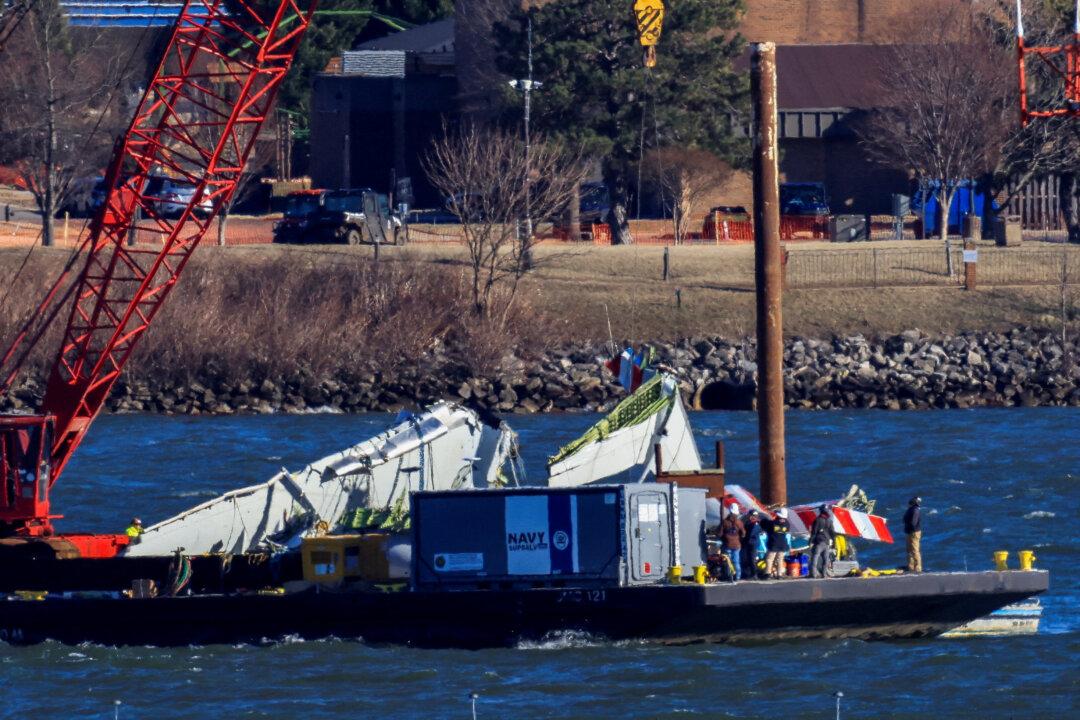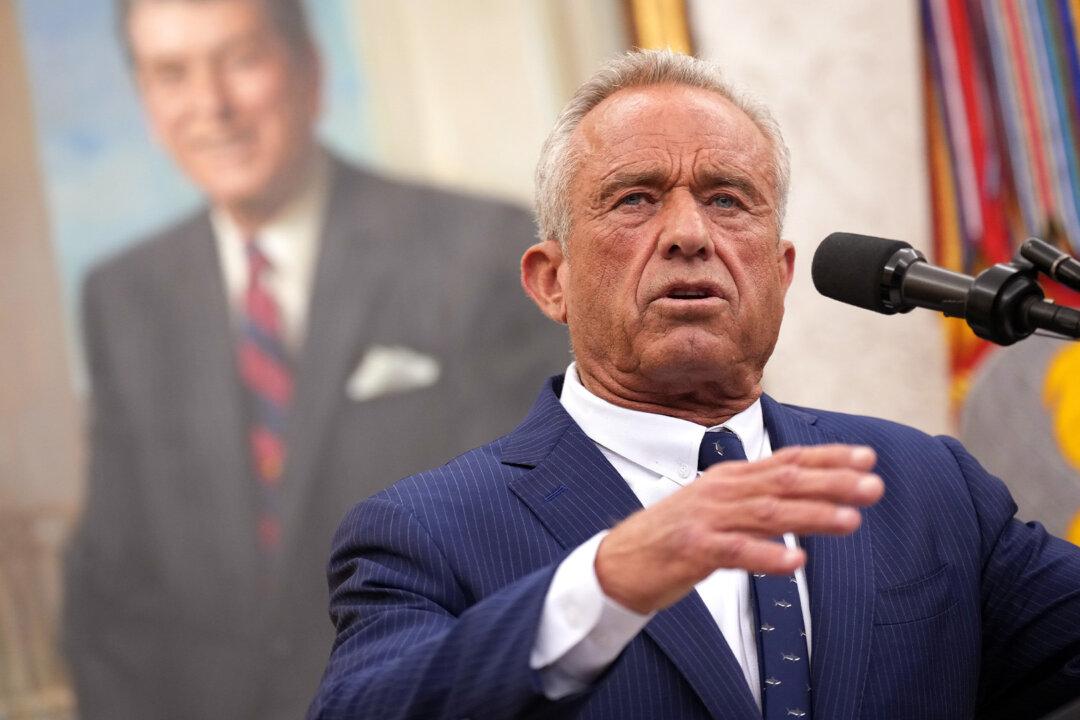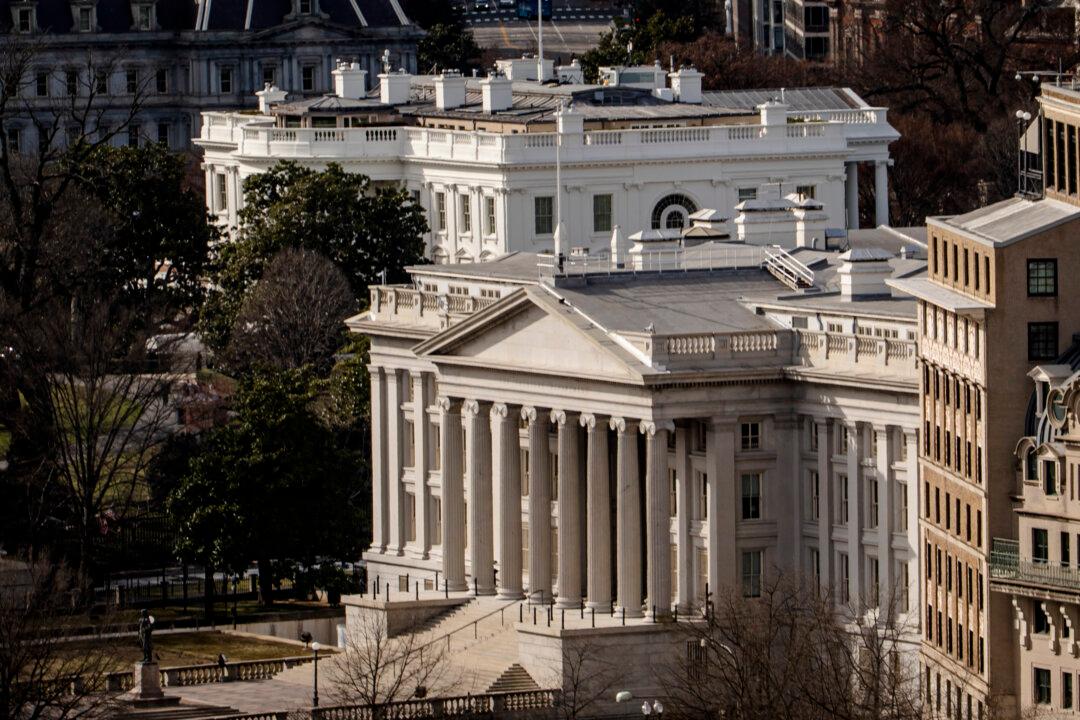Good morning, and welcome to The Epoch Times News Brief for Saturday, February 8, 2025. I’m Bill Thomas, we have some pressing stories to share with you right now, and here’s what’s going on.
Investigators reveal shocking details regarding last week’s deadly collision between a U.S. Army helicopter and a passenger jet; more than 20 states sue the attorney general of New York over a controversial law dealing with alleged climate damage, and a key Democrat in the Senate reveals his critical vote concerning a pair of highly scrutinized Cabinet nominees.
Also, a growing number of federal employees are taking advantage of a generous Trump administration buyout offer, and the president announces a significant change regarding a Japanese company’s halted purchase of a vital U.S. steelmaker.
Key Safety System Off in Army Helicopter That Collided With Plane
Sen. Ted Cruz (R-Texas) says that prior to the crash, the Black Hawk helicopter had turned off an important advanced technology called an automatic dependent surveillance broadcast (ADS-B), which is used to track aircraft location.He went on to say that there was “no compelling national security reason” during the training mission which would have required the flight crew to turn the system off.
According to Federal Aviation Administration (FAA) officials who briefed Cruz on the matter, those ADS-B systems are permitted but not required for military aircraft.
By the way, the senator also met with officials from the National Transportation Safety Board (NTSB), who are investigating the cause of the accident.
Earlier this week, one top official from that agency said that the helicopter had been recovered from the Potomac River, and based on the cockpit voice recorder, it appears that the helicopter pilot was wearing night vision goggles at the time of the crash. According to Transportation Secretary Sean Duffy, if that’s true, it would be unacceptable.
Additionally, officials have said that the helicopter was flying at an altitude of around 300 feet, or nearly 100 feet higher than the maximum permitted for helicopters in the area.
Meanwhile, the FAA has restricted helicopter flights around the airport following the disaster, and they now say they’re also reviewing other airports in the area that have “high volumes of mixed helicopter and airplane traffic.”
Coalition of 22 States Sues NY Attorney General Over Climate Superfund Law
A coalition of 22 states—including Texas, Georgia, and Iowa—is suing the state of New York in federal court, saying that the mandate which requires a small group of major energy producers to retroactively pay for alleged climate damage in that state is unconstitutional.The defendants in the case include Attorney General Letitia James, as well as the state’s acting tax commissioner and a high-ranking official with the Department of Environmental Conservation.
New York’s Climate Change Superfund Act was recently signed into law by Gov. Kathy Hochul. The measure establishes a “recovery” program under which companies that have “contributed significantly” to greenhouse gas emissions must pay $3 billion annually into a superfund to reimburse the state for climate damage allegedly caused between 2000 and 2018.
West Virginia’s attorney general is leading the group that’s challenging the law. He says that the lawsuit seeks to ensure that these “misguided policies,” which are being forced from one state onto the entire nation, will not lead America into an energy crisis that allows our adversaries to overtake our energy independence.
The suit also alleged that New York’s legislation is politically motivated “overreach.” It accuses the Empire State of trying to force both energy producers and consumers in other states to subsidize some of their infrastructure projects, including a new sewer system for New York City.
They also argue that the energy producers fully complied with federal law and could not have reasonably expected that they would be punished for doing so. They say that forcing them to pay billions of dollars in back penalties could put them out of business entirely, resulting in massive job losses across the country.
Meanwhile, a spokesperson for Hochul says that the governor believes that “corporate polluters should pay for the wreckage caused by the climate crisis—not everyday New Yorkers.”
Fetterman Says He Will Vote Against RFK Jr., Gabbard
Pennsylvania Sen. John Fetterman (D-Pa.) says that he opposes Trump’s pick for national security adviser, Tulsi Gabbard, along with his choice for health secretary, Robert F. Kennedy Jr., and that he’ll be voting against both of their nominations.Fetterman says that he has met with most of the Cabinet nominees, that he closely watched their confirmation hearings, and that he carefully considered what’s at stake before reaching his decision.
As you’re probably aware, Republicans have a 53–47 majority in the Senate, and a simple majority confirms nominees, so Fetterman’s opposition may not even matter.
However, it’s notable that recently, the senator has increasingly broken with Democrats and crossed the aisle to vote with Republicans, leading to speculation he might switch parties, but he says that’s not going to happen.
Meanwhile, both Gabbard’s and Kennedy’s nominations have been advanced by committees to full Senate votes, which are expected to take place before the end of this month.
Additionally, Senate Democrats have just delayed the committee vote concerning another of Trump’s nominees, Kash Patel, who’s under consideration to become our nation’s next FBI director. That committee vote is now likely to come sometime next week.
More Government Workers Accept Trump Admin Buyout Offer
A White House official says that the number of workers who have decided to accept the offer is rising dramatically, that nearly 65,000 government employees have already signed up for the deal, and that those numbers are expected to increase.In case you missed it, the offer is a deferred resignation that gives some federal workers nearly eight months of full pay and benefits if they quit their jobs. The original deadline for their decision was Feb. 6; however, earlier this week, a federal judge ordered the government to push it back until this coming Monday.
By the way, a hearing will take place on that day in a case brought by unions that could result in the deadline being pushed back even further.
One worker who recently accepted the offer says that she hopes to use the opportunity to move overseas, but that if the money never comes, she still wants out. She says that she is unwilling to comply with the new administration’s policies and worries that the situation will only get worse for people who stay.
For their part, the Trump administration says that the majority of federal agencies will likely see a reduction in their number of employees due to a number of changes they’re making. They include ordering federal employees to return to their offices, as well as stricter performance standards.
Trump Says Japan’s Nippon Steel Will Drop US Steel Purchase, Invest Instead
Trump says that he doesn’t want the company purchased by Japan’s Nippon Steel, but he’ll allow that organization to invest heavily in the decades-old American business.He trumpeted the development while standing alongside Japan’s prime minister in Washington, who also declared plans to increase his country’s investments in the United States to $1 trillion. He says that with Trump’s inauguration, the momentum for Japanese companies to invest in the U.S. is “even stronger.”
You may recall that in 2023, Japan’s largest steelmaker, Nippon, proposed a nearly $15 billion acquisition of U.S. Steel that would both expand their global operations and inject necessary investment into that company.
That announcement triggered significant bipartisan opposition here in the U.S. At that time, a number of Republican lawmakers urged the U.S. Treasury Department to stop the deal, citing national security concerns.
Additionally, a coalition of pro-union lawmakers asked President Joe Biden to block the takeover, which he eventually did during his final month in office. Both Nippon and U.S. Steel have since challenged that decision in court.
Meanwhile, an Ohio-based steelmaker called Cleveland Cliffs recently announced that they’re planning to potentially submit a new bid for the Pittsburgh-based steelmaker.
And now, it looks like our time is just about up for today, so we’re gonna call it a wrap for the Saturday edition (the weekend edition) of The Epoch Times News Brief.
To make contact with the News Brief crew, simply reach out to us via email and we’re at [email protected] and you can also leave comments for us on the Epoch Times app which you can download for free on either the App Store or Google Play.
Don’t forget the News Brief Motto: We’re portable, affordable, and we’re always on-demand.
And finally, as we do each and every day on this program, we wrap everything up with a very notable quote and this one comes to us from Isaac Newton who said:
“What we know is a drop, what we don’t know is an ocean.”
Newton was a mathematician, physicist, astronomer, alchemist, theologian, and author.
But you and I can just call him the gravity guy.
For all of us here at The Epoch Times News Brief, I’m Bill Thomas.
The Epoch Times News Brief program is written each day by David Ross.
Thank you for making us your one-stop source for a concise, accurate, and unbiased daily synopsis of many of the news stories you need to know about.
Enjoy the remainder of your day and we’ll see you right back here next time for another edition of The Epoch Times News Brief.
For now, it’s imperative that we all continue to watch out for one another and have an absolutely superb day today. Bye for now.







